Two companion bills soon to be introduced in Congress would raise the airline retirement age to 67 from the current 65. Sen. Lindsey Graham announced the Senate version of the bill and spoke about it at the Greenville-Spartanburg International Airport on Monday. “We just don’t have enough pilots over time to keep the skies working the way they should,” Graham, who is 67 himself, said at a press conference.
During the next two years, some 5000 pilots will age out at the mandatory age of 65. In 2007, the retirement age was raised to 65 from 60, despite worries that doing so would decrease safety by increasing the risk of accidents. Accident data hasn’t borne this out. Nonetheless, at least one pilot union, the Air Line Pilots Association, has pushed back on the idea of raising the age again. In a statement last May, ALPA said, “This discussion is yet another attempt to distract the conversation from the real issue which is the failure of airlines to deliver on a key goal of the multibillion-dollar relief plan Congress provided them during the pandemic which was to effectively manage air-service operations as travel resumes. ALPA strongly opposes this proposed legislation as there is no reason to change the retirement age today and doing so would only increase costs for airlines as well as introduce unnecessary risks to passengers and crew alike.”
Transportation Secretary Pete Buttigieg also opposes the change. “I’m much more interested in raising the bar on things like compensation and job quality than lowering the bar on something like safety,” Buttigieg told Fox News in an interview earlier this month.
The so-called Let Experienced Pilots Fly Act raises the retirement age, requires pilots over 65 to maintain a first class medical certificate, and requires air carriers to continue using pilot training programs approved by the FAA, things they are already required to do by law.
In the House, Rep. Chip Roy plans to introduce a companion bill on Wednesday. It would “immediately alleviate the consequences of this artificial shortage,” Roy said on Monday.














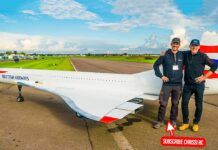
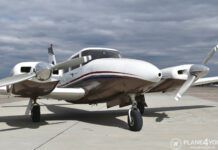







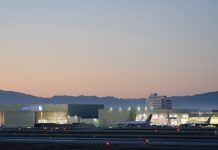
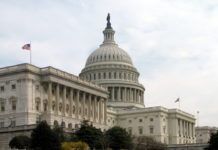
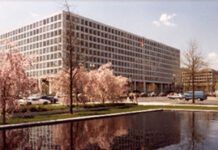


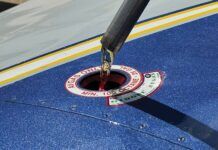




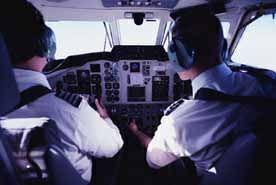

This action will not help the problem, just prolong it. If you want to fix the problem you need to start at the roots. Get into the schools and make flying accessible and attractive as employment to everyone. Some schools are doing this but not all. Reach into the flight schools and support them with resources to keep CFI’s from departing for the airlines with the airlines extra bonus money. The average instructor reaches 1000 or 1500 hours and then departs for the extra money instead of staying around and teaching. Experienced instructors are far and wide and not that numerous, sure you can go to the airlines and still teach the airlines need you more.
Im against encouraging and making it easier for the masses to become airline pilots. It’s like encouraging everyone to vote whether they have any clue about who they are voting for or whats on the ballot. We see how that turns out. I want my airline pilots to be people who put in the extra effort and passion for flying, who worked through the obstacles and made sacrifices. I want dedication. The world is filled with 5th place trophy winners who expect everything to be given to them. We already are a ways down the path where skin color and gender have become the most desirable qualifications.
Amen!!
How about just making it easier for PILOTS to become airline pilots? I know plenty of highly-qualified pilots who would consider the airlines if only they didn’t have to put up with the long and varying hours for comparatively low pay before making it to the majors. Make it so it’s attractive for people to switch careers INTO the airlines, instead of OUT OF them.
Now here is a novel concept, especially the last sentence.
The pay is pretty good anyway you look at it. Even for the regionals. The issue is gaining the hours to get to the job in the first place. We need to go to a system where the airlines can train their own pilots and with an approved system reduce the hours needed to be a second in command. That is the answer.
Tell me you’re a racist without saying you’re a racist.
Looks like I triggered someone. I guess anyone that says something you disagree with must be a racist. That word has no meaning anymore. No longer has any relationship to the original definition. It’s just a term ignorant people throw out whenever they hear or read something they disagree with. It’s meant to immediately bring a person to heel. Really doesn’t work anymore.
I always heard that when you had to go to profanity or ad hominem language that it shows you have a tired mind. Someone has a very tired mind, yes?
So right You’re, Gregory W.
“We already are a ways down the path where skin color and gender have become the most desirable qualifications.”
These are your words. If you truly believe that skin color and gender have become the most desirable qualifications for airline pilots, my comment stands. I will also add you are a misinformed dolt as well.
GregoryW…it is YOU who first threw out the race and gender card. YOU ARE a genuine racist. (I’ll bet you’re one of those who says they grew up and Never thought the N-word was a bad thing also.
PS: I’m white, Christian, and reconstructed.
@GregoryW:…In other words…people who don’t vote the way YOU vote are people “without a clue”. I’ve got some news for you, other than age and valid citizenship …. EVERYONE has a RIGHT to VOTE! (or perhaps you’re one of those who think only the 1st and 2nd Amndmnts have any validity…?
Exactly. Raising the retirement age likely won’t hurt safety, but it sure isn’t doing anything about the actual problem and will just delay it by 2 years. Either way, the airlines have to hire to replace those 5000 pilots, on top of adding additional pilots to meet the demand.
“ Reach into the flight schools and support them with resources to keep CFI’s from departing for the airlines with the airlines extra bonus money.”
I hear tell, that when the CFI’s hit the magic number of hours, the school “encourages” the CFI to leave so that the next class of CFI’s can get the hours. It’s all about throughput.
If our marxist Secretary of Transportation is against it then it must be a very good proposal. The biggest issue with raising the age is the international scheduling impact it would have on airlines unless or until other countries agreed to change their age limits as well.
Wow
Joe McCarthy for transport secretary!
How is the current Secretary of Transportation a Marxist? Please be specific.
Read Victor Davis Hanson’s “Cabinency of Dunces” where he is mentioned. He may not be a card carrying Marxist/communist but he sure is dumb one, if he is.
So Greg W lied when he said our current Secretary of Transportation is a Marxist. Got it. Interesting how people throw around terms like Marxist and Communist and have no clue what those words mean.
What I’ve learned is that the comments spewed on AvWeb are of even lower quality than those found on YouTube, and that’s really bad. AvWeb is a cesspool of ignorant, racist, misogynist claptrap. It’s really quite horrible.
“ Gregory W. ….If our marxist Secretary of Transportation ….”
Yep, Gregory, YOU are REAL WEINER!
If it’s a question of safety, there’s ZERO DATA showing that allowing 121 crewed operations to continue to 67 would have any negative impact. In fact the opposite may be true…Allowing experienced pilot to stay in the cockpit for two more years would likely increase overall 121 safety. ALPA and others oppose this simply for political reasons. This proposed legislation runs counter to their business interests and has nothing to do with safety.
Neither is there any data showing that allowing 121 crewed operations to continue would not have any negative impact. Increasing the retirement age could be safely accomplished if, and only if, it is coupled with a cognitive testing to weed out those whose abilities have declined to an unsafe point. However, both the airlines and the unions would oppose any such testing as many pilots below the retirement age would be disqualified.
That’s what a first class medical and check rides every 6 months are for. If you can pass these who cares how old you are. Be careful what you wish for changing medical requirements, it may get you no matter how old you are.
The problem is that there aren’t enough fresh faces in the pipeline to replace these older guys. This seems to be a very stopgap idea that in the end won’t make much of a difference. I’m a retired A&P and we have the same problem. Part of it is the younger folks don’t seem much interested in this business and why that is is not readily understood. Maybe they’re not interested in hard work and meeting tough standards.
The mindset I see is that too few want to get up, leave their internet connection and actually go to work in a profession where random drug tests and regular testing are requried.
Actually learning the material, passing tests and check rides where they have to perform and answer questions correctly, then grind through obtaining hours of experience, all with the risk of not being hired or making a mistake and having the doors all close? Fly all night? Awake at 0215 for a sixteen hour day? It’s too hard given the prevalent mindset.
Making it in aviation requires passion. If it’s not on a platter, they aren’t interested.
Sad but true. I am in construction. We offer the magic $15 an hour at a minimum, we have the health insurance, paid vacation, we reimburse for education, we train. All those things people are whining about yet we cannot get anyone to work. Problem is we drug test, we expect them to be on time and to work, we expect them to be there every day unless they are sick. It seems sadly we expect to much.
Some of you need to understand that there are already several countries who approve beyond 65 Operations. Australia and New Zealand have had no age limits for a very long time under their Human Rights legislation. Japan has 68 as a limit currently. Their are other countries as well. To suggest their is no data on safety for +65 Part 121 operations simply means ICAO and the FAA have done nothing to research the safety statistics that are available in those countries. I flew my last B777 flight as a 68 year old and I believe at the time I was the oldest Part 121 B777 pilot probably in the world. I am now 70 and still have a class 1 Medical and have no doubt I could return to the B777 now if I so desired. Frankly any age limit is discriminatory…. The medical and flight testing required by most Aviation Authorities throughout the world should be sufficient to identify those who cant meet the required standards no matter their age.
I though age 65 was an ICAO limit. Are there any countries that refuse air carrier international fights with a PIC older than age 65?
Wally the simple answer is yes the US and Europe enforce the ICAO limit. As a result +65 pilots fly only within the airspace of countries that have filed ICAO differences on the age requirement. For example I couldn’t fly to Japan because one of the en route alternates was PGUM (Guam). All my +65 operations were New Zealand to Australia and some Pacific Islands. I believe there are approx 14 countries who have age limits beyond 65.
Ah man….the topic was about raising the pilot age limit. Because of that, if you wish to make a statement, you should then express why, intelligent thought, as to why it is a good idea or not a good idea, maybe some facts supporting yes or no. But no! Here some of you go again mistaking this as Facebook and telling all how you feel about our politicians. I miss that connection as to why raising the age is good or bad. Why must you!! What makes you feel so compelled!
But as long as I’m drifting, ATC types by law may not act as controllers past their 56th birthday. And the max hiring age then becomes 31, so all folks get the chance to hit the magic 25 years of employment before getting the boot. That max age rule only applies to controllers hired after ’83, I believe that’s it. So most of them before ’83 are retired or dead by now. I had hired before ’83 and was grandfathered in the no age limit category. I told all my ATC folks that I was going to vector until I was drooling all over the scope and they couldn’t stop me.
Good one about drooling on the scope. My thoughts regarding the topic are exactly the same as yours.
The age 56 rule was put into effect in the 70’s as a response to a PATCO/FAA agreement. I was hired in 1980 and had to retire when I hit 56 years of age. I applied for a waiver but was denied. Maybe you are thinking of the PATCO strike?
Yea. The age law was a result of Public Law 92-297 in ’72. But somewhere along the way, we (many controllers) had the understanding that prior to ’83, FERS enactment, we were exempt from the retirement requirement. That was from my last two facilities, ORD and BNA. I used to go out of my way and joked about it. Understood and never contested. But that was more than 20 years ago. I quite currency at age 53 though and stayed till 58 as staff/manager kinda guy. Now, scratching my head.
I think I found what I was kinda remembering. It was hired before ’72, not ’83. I was a ’68 hire and is where myself and a few others I worked with got to drool if we wished to do so. But, guaranteed that those controllers are indeed retired (or dead) now. I feel slightly better about what I thought I was remembering anyhow.
Excerpt from the age 56 retirement rule.
The following categories of CSRS air traffic controllers are automatically
exempted from mandatory separation:
• Air traffic controllers who were first appointed by the Department of
Transportation before May 16, 1972;
Sen. Graham (SC) is one sponsor and there is wide discussion that it is motivated by SC constituency politics because he has been pressed on the pilot shortage from several fronts. My many 121 friends are generally reporting that their unions and management are both aligned in apposing raising the retirement age. Both unions and airlines have been internally messaging their opposition to members and pilots.
The management rationale to appose this is bald economics: what pilot population do you thing they have on long term disability while waiting for their retirement date to hit: Yes, pilot that are in the last 10% of their careers. Raising the retirement age would make the majors, in particular, keep paying for 3 more years. No rational CEO would want to be on the hook for that. Good luck renegotiating the contracts too, the unions won’t budge on that aspect.
Really doubt these will pass into law. But who knows, it could be stuffed into an omnibus bill or budget bill and just go along for the ride.
Okay, kiddies, now that we’ve gotten all our biases out there I have something for you to think about:
Somebody had better be looking at the mechanic/avionics technician needs. I find it remarkable that nobody seems to be aware that it takes one and a half to two years in school or two and a half years as an apprentice to get an Airframe and Powerplant Mechanic certification and that is only the starting point.
No airline will look at a mechanic seriously, with less than two years industry work experience, after getting the A&P cert.
No aircraft with a defect may return to service until a certified A&P signs it off as safe to return to service.
Then there’s the pathetic pay. Unless and until the mechanic pay comes up there’ll be no rush to the schools to be certified.
It won’t matter how many pilots they have sitting around in reserve at $150K+ yearly, when there are no planes fit to fly for want of a certified mechanic.
There have been, and are, too many initiatives to make fewer mechanics with lower qualifications necessary. LEAN, Simplified Technical English, TQM and SMS (aka. fox in the henhouse) all do nothing but lower the bar and increase the risk. I hope people are reading the news as the accident and incident numbers slowly increase. Enough pontification. Good luck out there. 🥺
You make a good point. The pilot shortage is the obvious tip of the iceberg, but the maintenance end of the equation is equally important and is being totally overlooked. Being an A&P in general aviation is neither glamorous nor well-paying. Working for the airlines generally means working at night (when the planes are down), doing reams of paperwork, facing difficult deadlines when a scheduled fight has a mechanical problem, and being subjected to intense scrutiny if or when an accident occurs. The work is often insufferably hot or freezing cold. Small wonder that today’s youth are not interested. I just lost the A&P/IA that has maintained my airplane for the past decade. A sudden illness forced him to retire, taking more than a half-century of knowledge with him. Finding a good replacement is proving to be a challenge. Like doctors, some of the A&P/IAs in the area are not taking on any new clients. I have considered getting my A&P license, but holding down a job makes attending mechanic’s school almost impossible (the local school does not offer classes at night). Senator Graham’s proposal only kicks the can a few years down the road without any attempt at solving the root problem (typical congressional buck-passing). And, it ignores half of the problem.
No one has mentioned the hastily implemented, ill-thought out legislation that raised the ATP requirement to 1500 hours unless you had specific university or military training. This rule has done more, all by itself, to curtail the numbers of candidates willing to endure the time and expense to become an airline pilot. There have been some innovative, forward-thinking entities (Republic Airlines) who have proposed specifically tailored, airline-specific training programs that would produce a quality, well-trained and motivated individual at much less expense and fewer required hours. This is an idea that deserves grater investigation.
Some of the comments on this topic are truly works of COF thinking; along the line of “when men were men and steel eyed pilots flew manual through storms and commanded respect.”
I personally would not care if the FAA removed any age requirement and focused on increased testing and check rides that focused on mental acuity, attention to detail, and CRM. That will not solve the core issue, because more pilots are leaving then entering and I really do not see one damn thing in place to fix that problem.
Let’s bottom line it, the ability to enter aviation has increased to the point where it is getting beyond the average/middle class kid to afford. When I got my PPL in the mid-90’s at a small flight school it was costing me $60 and hour and wet rental at $70 for a Piper Tomahawk or C152. Researching today put’s a basic VFR rental at close to if not over $100 an hour and what young person can afford that. I was a high 5 figure professional and I still had to budget my flight costs and when I got to IFR I stopped, because I knew I could not afford the time requirements to be a safe IFR pilot. Sucked, the decision, but it was the right choice for me.
“Well there is school” you say and sure there is, but now you’re asking young people to make a commitment to a profession without really knowing the full extent of what is required and put a minimum of $100,000 of debt on their shoulders. What if they don’t make it? What if they have a life change or what if they get hired and the airline lays them off 6 months after starting. Aviation has never been a secure job, even for captains.
So, the old school path of GA PPL, Instrument, Commercial, (CFI), ATP has become expensive to the point that the aviation industry struggles to get younger people into newer planes. 1500 hours is the magic line now and if you had 100 people start down that path, you may only have a small percentage that cross the line.
Aviation schools (Universities) could be a path, but now we get into cost issues, completion issues, and again many enter, fewer finish, but now they hold A LOT of debt and if the airlines F them over, yes they will leave.
I’d like to see Airlines (who are so sadly desperate) create paths where they set up training institutes, cover most of the cost of flight education (maybe have government support) then require X amount of time with the company with early departure penalties but reciprocally, they cannot cut pay furlough to remove those pilots till they’ve worked their time.
Retirement age increases will not solve this problem. GA can never return to a halcyon day of low cost aviation experiences that not just inspire, but provide a viable path to becoming an ATP.
I don’t cry over the lamentations of the airline industry, because flying is not a right, there are alternatives to travel, and if this current issue causes some airlines to fail then it will just be the market doing what it always has done, adjust to the times.
Abolish all age limits and ratings. Require all new hires to log 250 hrs. of computer time on how to fly an airliner and an oral exam given by Lindsay Graham. Problem solved.
Yeah. No way am I working to 67.
There’s a pilot shortage until there isn’t. All it will take is a prolonged recession, maybe economic depression; and 5 or 10 years of inflation putting everyone in the poor house, and then we’re back to the same old cycle of furloughs and airline bankruptcies. By the way, the inflationary cycle which I remember very well, started under Nixon around 1971 with wage and price controls; continued under Gerald Ford, ‘WIN’ – Whip Inflation Now! And it continued with ‘stagflation’ under Jimmy Carter, when mortgage rates rose to between 13 and 15% in the late 70’s and early 80’s. Finally under Reagan FED chairman Paul Volcker raised the the federal funds rate to 20% and the prime rate rose to 21.5%. That killed inflation and the economy (airline furloughs) and we entered a recession. If we have another cycle like that, that will take care of the pilot shortage. By the way, I was supposed to go to work for United in the late Summer of 1979. I was waiting for a training date when they furloughed 500 pilots before I got a class…so on to plan B for me. Those who do not learn from history are doomed to repeat it. Brother, can you spare a dime? Rough sailing ahead, I’m afraid.
Makes me glad that I am close to retirement. After 4 furloughs in my working lifetime now I find myself in a position to just say @#$& it if another layoff happens and start collecting social security and my 401k accounts.
The one thing that amazes me is the lack of respect shown to older experienced pilots by a lot of younger posters not only here but on other forums as well. I’m glad I don’t have to deal with that nonsense where I am at now. I would not want to be a crew member dealing with that attitude. In addition to lack of work ethic shown by a lot of younger people, I guess those persons were never taught by their parents the meaning of respecting their elders.
Has anyone asked working pilots if they want to fly until they are 67? How many pilots took an early out package during Covid allowing them to retire years before they would turn 65? Whether you are riding in the back or sitting upfront, airline flying is not what it used to be. I’m not so sure very many pilots are going to jump at the chance to work another two years.